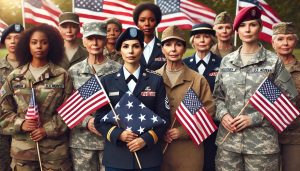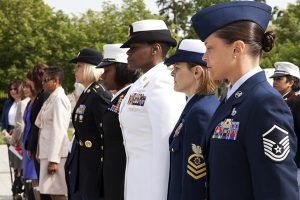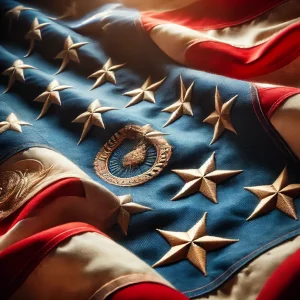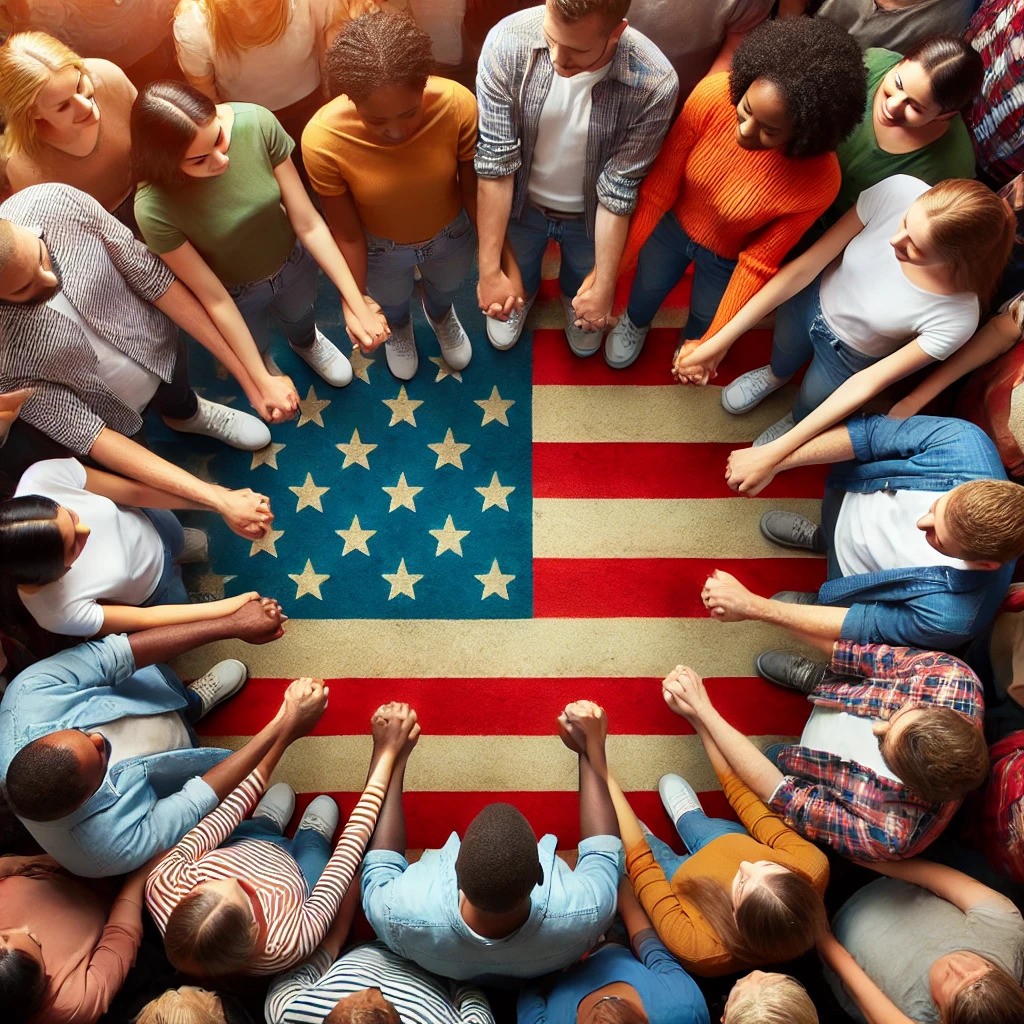Women have been an integral part of military forces around the world for centuries, yet their stories have often been overlooked or undervalued. As veterans, these brave women face unique challenges upon returning to civilian life, many of which have been historically ignored or inadequately addressed. As the image poignantly states, women veterans deserve equal care and respect. Their service should be honored just as much as that of their male counterparts, with access to the same resources, healthcare, and support systems.

The Evolving Role of Women in the Military
Early Contributions to Military Service
Women’s roles in the military have evolved dramatically over time. From nurses in the Civil War to the front lines in modern-day combat, women have proven their dedication to national defense. During World War II, more than 350,000 women served in various capacities, including the Army Nurse Corps and the Women’s Army Corps (WAC). They were pivotal in maintaining essential operations, freeing up men to fight in combat zones. Despite their invaluable contributions, these women often returned home to little recognition.
Breaking Barriers in the 21st Century
In recent decades, women have broken through many military barriers, gaining access to combat roles and leadership positions. The 2015 policy change allowing women to serve in all combat positions was a significant milestone. Female veterans today continue to contribute in a range of roles—from pilots and engineers to intelligence officers and medics. However, with these advancements comes the need for the military and the public to fully acknowledge the sacrifices these women make and ensure their proper treatment upon returning home.
Challenges Faced by Women Veterans

Health Care Needs and Barriers
One of the most pressing issues for women veterans is access to healthcare that addresses their unique needs. Many women veterans face challenges such as Post-Traumatic Stress Disorder (PTSD), Military Sexual Trauma (MST), and reproductive health issues related to their service. Unfortunately, the healthcare system has not always been equipped to adequately serve female veterans.
The Veterans Health Administration (VHA) has made progress in recent years, opening more women-specific healthcare centers, but disparities still exist. Research shows that female veterans are more likely to experience difficulties accessing appropriate care compared to their male counterparts, leading to unmet health needs and delays in treatment.
Homelessness and Employment
The transition from military to civilian life can be difficult for any veteran, but for women, it comes with additional challenges. Women veterans are more likely to be single parents or caregivers, which can complicate their job search. The unemployment rate for female veterans is also higher than for male veterans. Additionally, homelessness among female veterans has been on the rise in recent years, with many struggling to find stable housing due to financial instability, mental health challenges, or lack of family support.
The Need for Respect and Recognition

Acknowledging Their Service
The image of the elderly woman proudly holding the American flag reminds us that women have long been an integral part of the nation’s defense. Women veterans must be recognized not only for their service but also for the unique challenges they face upon returning home. Events like Veterans Day should highlight the stories of women who have sacrificed so much for their country. Public campaigns can help raise awareness and ensure that female veterans receive the recognition they deserve.
Ensuring Equal Access to Benefits
Women veterans should not have to fight for equal access to the benefits and services they’ve earned through their service. This includes healthcare, mental health services, and resources for transitioning back to civilian life. The Department of Veterans Affairs (VA) must continue to improve its services for female veterans, ensuring they receive the same level of care and support as their male counterparts. Advocacy groups also play a vital role in pushing for these reforms and ensuring that women veterans are not left behind.
Ways to Support Women Veterans

Advocacy and Policy Change
Advocacy is crucial in ensuring that women veterans receive the care and respect they deserve. Supporting organizations that focus on women veterans’ issues, such as the Women Veterans Network (WoVeN), can help amplify their voices. These organizations work to provide resources, raise awareness, and advocate for policy changes that benefit female veterans.
Additionally, policy reforms at both state and federal levels are needed to address disparities in healthcare, employment opportunities, and housing. Lawmakers should be pushed to implement veteran-specific policies that take the unique experiences of female veterans into account.
Community Support
Communities also have a role to play in supporting female veterans. Volunteer programs, mentorship initiatives, and veteran-specific career fairs can help ease their transition into civilian life. Employers should make an effort to hire women veterans, recognizing the leadership and problem-solving skills they developed during their military service. Furthermore, supporting mental health programs for veterans can ensure they have access to the emotional and psychological resources they need.
Women veterans have served with courage and commitment, often overcoming significant barriers to fulfill their duty. It is our responsibility as a society to ensure they are met with the same level of care, support, and respect that male veterans receive. From healthcare access to recognition of their service, women veterans deserve better, and it’s time to act. By advocating for equal treatment and ensuring they have access to the necessary resources, we can honor their sacrifices and help them thrive in post-military life.

FAQs
*What challenges do women veterans face after service? Women veterans face unique challenges such as access to healthcare, employment, housing, and addressing issues like PTSD and Military Sexual Trauma (MST).
*How has the role of women in the military evolved? Women have transitioned from support roles to combat and leadership positions, breaking barriers over the last few decades.
*What organizations support women veterans? Several organizations, like the Women Veterans Network (WoVeN) and the Department of Veterans Affairs (VA), work specifically to support female veterans.
*How can the healthcare system improve for women veterans? The healthcare system can improve by expanding access to women-specific services, addressing barriers to care, and providing mental health support tailored to female veterans.
*What can communities do to support female veterans? Communities can offer employment opportunities, mentorship programs, and mental health services to help women veterans transition back to civilian life.
*Why is it important to acknowledge women veterans’ service? Acknowledging women veterans’ service ensures that their contributions are valued and that they receive the recognition and benefits they rightfully deserve.


